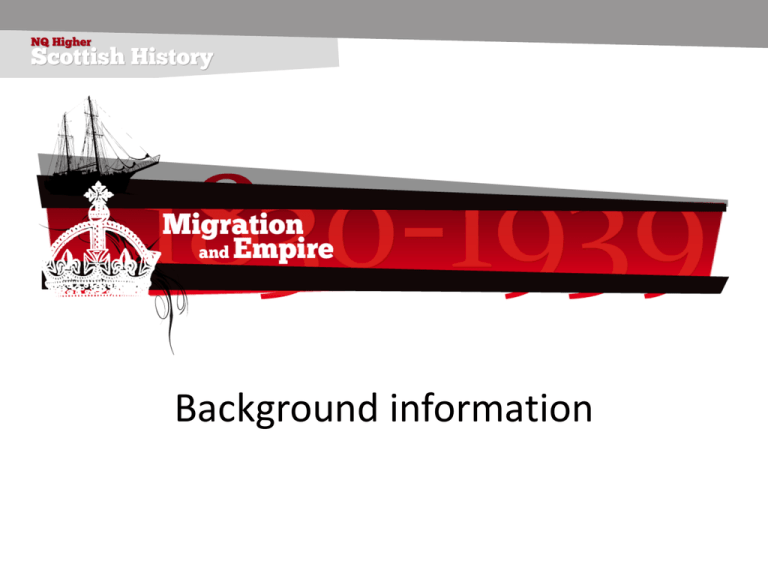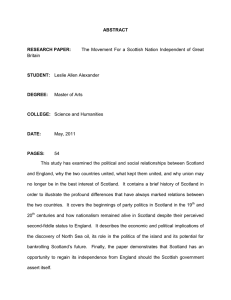Background information
advertisement

Background information Scotland before 1830 • Scotland had a largely rural community before 1830. • After this time as a consequence of the Industrial Revolution there was a huge shift in this trend. With the growth of the mills, chiefly through the cotton mills and with the growth in. A moving trend ... • From the mid-19th century there has been a shifting population in Scotland. This trend saw a huge outpouring of the population south of the border to England as well as further afield to parts of the British Empire. • Generally this loss of population arose as many sought to find a better standard of living in Australia, Canada, the USA and parts of the British Empire. • The majority of those who left Scottish shores were young – the future generations, taking their skills with them. Why did they leave? • Historians debate that the desire to emigrate arose from the dire living conditions in rural areas in addition to the Highland Clearances. • Furthermore, as industry changed, some historians state that a substantial group from urban areas made this shift too. • What is agreed by many historians and social commentators is that an extensive emigration programme (through Government planning or assisted packages) provided a solution to the many economic issues of the day, such as rising unemployment, poor housing and increased dependency on the poor law. • Finally, some argue that emigration was beneficial to some Scots as it allowed them to become entrepreneurs and allowed them to build on their skills and establish businesses and ideas. • In addition to those who left, many nationalities arrived on Scottish shores. The Scottish attraction? • There have been many nationalities who were attracted to the Scottish nation between 1830 and 1939. • Scotland became the focus for many who were experiencing difficulties in their own lands. It is therefore accepted that many were looking for some kind of escape, and Scotland was not their destination of choice. The new arrivals... • The Irish arrived in Scotland to flee a terrible famine and abject poverty. • Others, such as the Jews and some eastern Europeans, were fleeing religious and/or political persecution. • Historians note that Scotland was seen as a stopping-off place until passage could be secured for America or some other land of opportunity. • Those that settled in Scotland only did so as they lacked the finance to go further afield. • Some groups, such as the Polish and Lithuanians were fooled into believing that Scotland was a prosperous land offering a wealth of opportunities.




